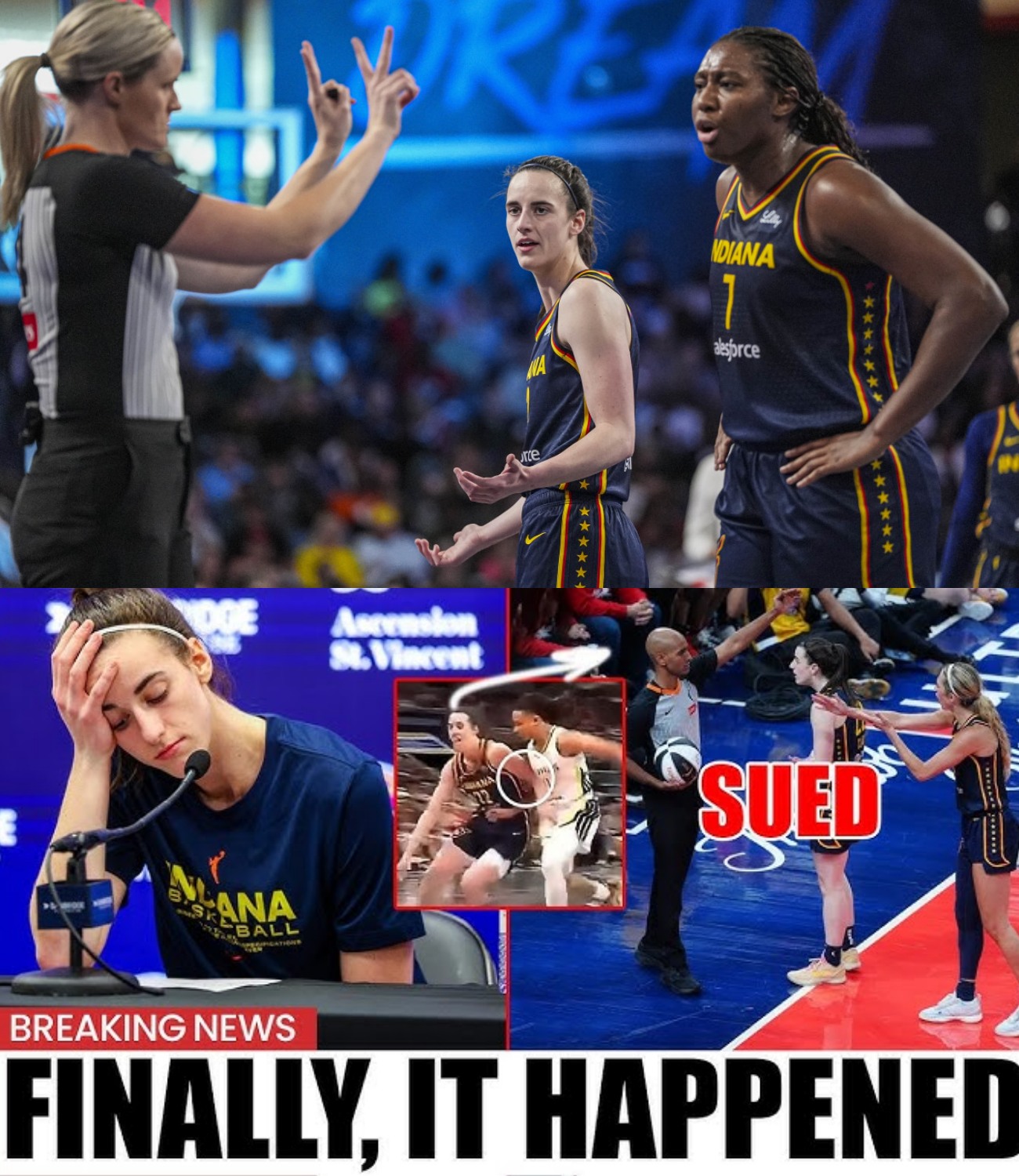
Caitlin Clark Sues the WNBA: A Rookie’s Legal Fight Could Reshape the League
In a stunning turn of events, Indiana Fever rookie sensation Caitlin Clark has filed a bombshell lawsuit against the WNBA and its officiating body, accusing them of gross negligence and creating an unsafe work environment. The filing marks an unprecedented legal challenge that could redefine how leagues handle player safety and officiating standards.
“This isn’t just about missed calls—this is about an athlete being systematically failed by the very league she elevates,” a source close to Clark’s camp said.
Since her WNBA debut, Clark has endured unrelenting physical play—hip-checks, elbows, and off-ball assaults that consistently go uncalled. Viral clips have exposed referees repeatedly ignoring blatant fouls. Clark’s legal team argues that the league’s refusal to enforce its own rules amounts to a reckless breach of duty.
The lawsuit doesn’t just target the referees. It directly links the league’s inaction to financial harm, alleging that repeated physical abuse diminishes Clark’s performance, career longevity, and marketability—impacting the very engine that’s driving the WNBA’s record-breaking success.
This legal fight is unprecedented. While complaints about referees are common in sports, suing over officiating non-calls is virtually unheard of. Clark’s case suggests that when consistent negligence endangers a player’s health, the league becomes liable—not immune.
The catalyst? A brutal uncalled foul in a recent Fever game that left Clark on the floor, yet again with no whistle blown. That moment, insiders say, broke whatever faith remained in internal resolutions.
Now, the WNBA faces a credibility crisis. Discovery in the case could expose damning internal communications, referee evaluations, or policies that reinforce the idea of systemic bias. The lawsuit has already divided the basketball world: Clark’s supporters view it as a courageous stand, while some veterans accuse her of undermining league culture.
Regardless of public opinion, the court battle will be long—and history-making.
“The game has changed,” one analyst noted. “Now it’s not just about what happens on the court. It’s about whether the league will survive the courtroom.”

